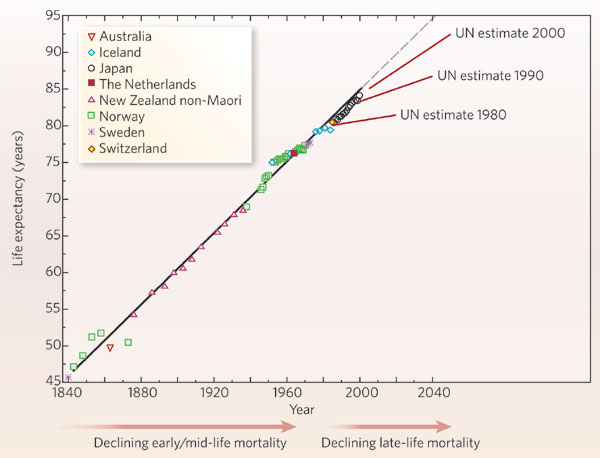Past increases in life expectancy and predictions for the future.
Previous explanations for the aging process have involved the shortening of telomeres over a lifetime, the accumulation of oxidative damage, and the eventual 'running-down' of one's mitochondria, however the true reason is probably a combination of all of the above and more. The current consensus is that aging is caused by a lifetime of accumulated molecular damage that eventually results in diseases like cancer, Alzheimer's, and other health issues associated with the elderly.
But if ageing is a matter of things falling apart, can research realistically hope to achieve anything useful? The answer is emphatically yes — there is plenty of evidence that it is possible to intervene in the underlying causative mechanisms. Indeed, the malleability of the ageing process, as revealed by demography, derives precisely from the fact that it seems to be possible to slow the rate at which damage accumulates. Human longevity continues to increase when further gains from reducing mortality earlier in life are negligible because nowadays we reach old age, on average, in better condition than ever before.
I am not going to cover the whole article in this post, but I feel as though this excerpt in particular underlines the reason why all of this is so fascinating. It is the inherent optimism and mystery behind why we age the way we do, and why we continue to live longer and longer.
Kirkwood, T. (2008). A systematic look at an old problem Nature, 451 (7179), 644-647 DOI: 10.1038/451644a



















[...] we now consider ‘middle’ age, but as I mentioned earlier this week, we’ve seen a sharp decline in middle-age mortality in the past 200 years. As longevity continues to increase, we are just living that much longer past our reproductive age. [...]
ReplyDelete